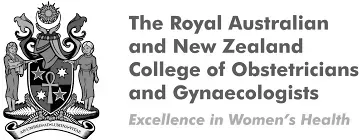Polycystic Ovary Syndrome (PCOS)
What is PCOS?
Polycystic Ovary Syndrome (PCOS) is a common hormonal disorder that affects women of reproductive age. It is characterised by a combination of symptoms, including irregular menstrual periods/ovulation, excess androgen levels, and polycystic ovaries, which are ovaries that may be enlarged and contain numerous small cysts.
Impact of PCOS on Anatomy and Health
PCOS impacts various aspects of a woman's health and anatomy, primarily due to hormonal imbalances. Here are some of the key effects:
- Menstrual Irregularities: Women with PCOS often experience irregular menstrual cycles, including missed periods, infrequent periods, or prolonged periods. This is due to the lack of ovulation (anovulation) or irregular ovulation.
- Hyperandrogenism: Elevated levels of androgens (male hormones) can lead to physical signs such as hirsutism (excessive hair growth on the face and body), acne, and male-pattern baldness.
- Polycystic Ovaries: The ovaries may enlarge and contain multiple small follicles or cysts. Despite the name, not all women with PCOS have polycystic ovaries visible on ultrasound.
- Infertility: Irregular ovulation or lack of ovulation can lead to difficulties in conceiving. PCOS is one of the most common causes of infertility.
- Metabolic Issues: Many women with PCOS have insulin resistance, which means their bodies can’t use insulin effectively. This can lead to higher insulin levels, which can increase the production of androgens. Insulin resistance also increases the risk of developing type 2 diabetes, obesity, and cardiovascular diseases.
- Weight Gain: PCOS is often associated with weight gain or difficulty losing weight. This weight gain is typically concentrated around the abdomen.
- Sleep Apnea: Due to weight gain and hormonal imbalances, women with PCOS are at a higher risk of developing sleep apnea. In this condition, breathing repeatedly stops and starts during sleep.
- Emotional and Psychological Impact: Women with PCOS may experience mood swings, anxiety, and depression. The physical symptoms of PCOS, such as hirsutism and acne, can also impact self-esteem and body image.
Cause and Risk Factors for PCOS
The exact cause of PCOS is not fully understood, but it is believed to result from a combination of genetic, hormonal, and environmental influences. Here are some of the key factors that contribute to the development of PCOS:
- Genetics: PCOS tends to run in families. If a mother or sister has PCOS, the likelihood of developing the condition increases.
- Obesity: While PCOS can cause weight gain, being overweight or obese can also exacerbate the symptoms of PCOS, particularly insulin resistance and menstrual irregularities.
- Insulin Resistance: Women whose bodies are resistant to insulin or who have higher levels of insulin are at greater risk of developing PCOS. High insulin levels can increase androgen production, interfering with the ovaries' ovulation ability.
- Lifestyle Factors: A sedentary lifestyle and poor diet can contribute to obesity and insulin resistance, risk factors for PCOS.
- Hormonal Imbalances: Women with hormonal imbalances, particularly high levels of androgens or luteinising hormone (LH), are at increased risk for PCOS.
Symptoms of PCOS
PCOS is a heterogeneous condition, meaning that its symptoms and presentation can vary from person to person. Not everyone with PCOS will experience all the symptoms, and the severity of these symptoms can also differ. Common symptoms of PCOS include:
- Irregular Menstrual Cycles: Women with PCOS often have irregular periods, ranging from very long cycles to no periods.
- Excess Androgen Production: This can lead to symptoms like hirsutism (excessive hair growth on the face and body), acne, and male-pattern baldness.
- Ovulatory Dysfunction: PCOS can cause problems with ovulation, leading to fertility issues and difficulty getting pregnant.
- Polycystic Ovaries: Many people with PCOS have enlarged ovaries with small, fluid-filled sacs or cysts on their surface, which can be seen on ultrasound.
- Weight Gain and Obesity: PCOS is often associated with weight gain and obesity, although not everyone with PCOS is overweight.
- Insulin Resistance: Some individuals with PCOS have insulin resistance, leading to high levels of insulin in the blood and an increased risk of type 2 diabetes.
- Skin Issues: In addition to acne, PCOS can lead to skin problems like skin tags, darkening of the skin (acanthosis nigricans), and skin discolouration.
- Mood Changes: Some individuals with PCOS may experience mood swings, depression, or anxiety.
Types of PCOS
PCOS can manifest in different forms, and understanding these types can help tailor treatment plans more effectively.
Diagnosis of PCOS
Here's how PCOS is typically diagnosed:
- Medical History: Your doctor will ask about your menstrual history, including the regularity of your periods and any changes in your menstrual cycle. They will also inquire about other symptoms, such as hirsutism (excessive hair growth), acne, and any issues related to fertility.
- Physical Examination: A physical examination may be conducted to check for signs of PCOS, such as acne, hirsutism, and abdominal obesity. Your doctor may also perform a pelvic exam to assess the size and condition of your ovaries.
- Blood Tests: Blood tests measure hormone levels, including testosterone, luteinising hormone (LH), follicle-stimulating hormone (FSH), and anti-Müllerian hormone (AMH). Elevated levels of these hormones, especially testosterone, can indicate PCOS.
- Ultrasound: A pelvic ultrasound is often performed to visualise the ovaries. In PCOS, the ovaries may appear enlarged and have small cysts on their surface.
The diagnosis of PCOS is typically made when at least two out of three criteria are met:
- Irregular or absent menstrual cycles/ovulation.
- Elevated levels of androgens (such as testosterone) or clinical signs of androgen excess (like hirsutism or acne).
- Polycystic appearance of the ovaries on ultrasound.
Management of PCOS
The management of PCOS focuses on addressing the specific symptoms and underlying hormonal imbalances that individuals with PCOS may experience. Treatment plans are tailored to the individual's needs and goals, and this can vary at different stages of your life. Treatment may include:
Lifestyle Modifications
- Healthy Diet: Adopting a balanced, nutritious diet can help manage weight, improve insulin sensitivity, and regulate menstrual cycles. A low-glycemic-index diet that includes whole grains, lean proteins, fruits, vegetables, and healthy fats is often recommended.
- Regular Exercise: Regular physical activity can help with weight management, improve insulin sensitivity, and reduce the risk of cardiovascular complications. Aim for at least 150 minutes of moderate-intensity exercise per week.
Medications
- Birth Control Pills: Oral contraceptives (birth control pills) are commonly prescribed to regulate menstrual cycles and reduce androgen-related symptoms such as acne and hirsutism.
- Anti-Androgen Medications: These medications, such as spironolactone or finasteride, can address excess facial and body hair growth (hirsutism) and acne.
- Insulin-Sensitizing Medications: Metformin may be prescribed to improve insulin sensitivity and lower insulin levels for individuals with insulin resistance.
- Ovulation Induction: If fertility is a concern, medications like clomiphene citrate or letrozole may induce ovulation.
Fertility Treatments
- Ovulation Stimulation: Some individuals with PCOS may require assisted reproductive technologies (ART) like in vitro fertilisation (IVF) or intrauterine insemination (IUI) to help with fertility.
- Lifestyle Changes: Weight loss and lifestyle modifications, including dietary changes and increased physical activity, can improve fertility in overweight or obese individuals with PCOS.
Regular Follow-Up
It's important to have regular check-ups with a doctor to monitor the effectiveness of treatment, assess any potential complications, and adjust the treatment plan as needed.
Management of Specific Symptoms
- Acne: Dermatological treatments and skincare routines can help manage acne associated with PCOS.
- Hair Removal: Various methods such as shaving, waxing, laser hair removal, or electrolysis can be used to manage excess hair growth (hirsutism).
- Emotional Well-Being: PCOS can have psychological effects, including depression and anxiety. Mental health support, counselling, or therapy may be beneficial.
Management of Long-Term Health Risks
Doctors may also address long-term health risks associated with PCOS, such as monitoring for the development of type 2 diabetes, high blood pressure, and cardiovascular disease. In addition, abnormal cells can grow within the lining of the uterus (endometrial hyperplasia) which can develop into endometrial cancer (cancer of the uterus) in rare cases.
Weight Management
Achieving and maintaining a healthy weight can be essential to PCOS management, especially for those with obesity. Weight loss can improve insulin sensitivity and reduce the severity of PCOS symptoms. For example, 5-10% weight loss can be sufficient for some individuals to resume more frequent ovulation.
What if PCOS is Untreated?
If PCOS is left untreated or poorly managed, it can lead to various health complications, including:
- Infertility: Untreated PCOS can make conceiving difficult due to irregular or absent ovulation.
- Metabolic Issues: PCOS is associated with an increased risk of type 2 diabetes, high blood pressure, and abnormal lipid profiles.
- Endometrial Cancer: Irregular or absent menstrual cycles can lead to the buildup of the uterine lining, increasing the risk of endometrial (uterine) cancer.
- Cardiovascular Problems: PCOS is linked to an increased risk of cardiovascular disease, particularly in individuals who are overweight or obese.
- Psychological Impact: PCOS's emotional and psychological impact, including depression and anxiety, should not be underestimated.
To minimise these risks and manage the condition effectively, individuals with PCOS must work closely with their doctors to develop a personalised treatment plan and receive regular check-ups. Lifestyle changes, medications, and proactive management can significantly improve the quality of life for those with PCOS.



